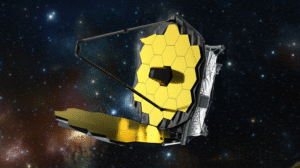The Fermi Paradox Explained: Why Haven’t We Found Alien Life?
The Fermi Paradox questions why we haven’t found alien life despite a vast universe full of potential. Explore key theories and future technologies that may solve this cosmic mystery.

Introduction
The Fermi Paradox presents a puzzling contradiction. The universe seems full of potential for life, yet we find no evidence of extraterrestrial civilizations. This silence challenges our understanding of the cosmos and our place within it. Named after physicist Enrico Fermi, the paradox questions why, given the high probability of alien life, we have not encountered any signs of it. It forces us to reconsider assumptions about life’s prevalence and the development of intelligent species. Moreover, it highlights the limitations of our current search methods and technologies. The implications for humanity and science are profound, urging a deeper exploration of our universe and the conditions necessary for life.
The Universe’s Vast Canvas
The universe stretches beyond comprehension, hosting billions of galaxies. Each galaxy contains countless stars, many with planets orbiting them. Scientists estimate numerous planets lie in habitable zones, where life could potentially thrive.
The Drake Equation offers a framework to estimate communicative civilizations. It considers factors like star formation rates and planets capable of supporting life. Despite its speculative nature, the equation highlights the universe’s potential for life. Yet, the vast distances between stars and galaxies make communication challenging.
Transitioning from theory to observation, we face the silence. The scale of the universe suggests life should be common. However, evidence of extraterrestrial civilizations remains elusive. This contradiction fuels ongoing research and debate among scientists.
Delving into the Paradox: Why the Silence?
The Absence Hypothesis
- Rare Earth Hypothesis: Earth might be uniquely suited for complex life. [Citation: Rare Earth Hypothesis suggests Earth’s conditions are uniquely rare.]
- The Great Filter: Humanity may have already passed this filter, or it could lie ahead. This has big implications for our future.
The Presence but Hidden Hypothesis
- Technological Limitations: Our current methods might not detect advanced civilizations. [Citation: Current SETI methods may not be advanced enough to detect alien signals.]
- The Zoo Hypothesis: Aliens could be observing us without interference. [Citation: The Zoo Hypothesis posits aliens may be observing us without interference.]
- Avoidance: Advanced civilizations might have reasons to avoid contact with us.
The Misinterpretation Hypothesis
- Beyond Carbon-Based Life: Life might exist in forms we don’t yet understand.
- Communication Barriers: Recognizing or decoding alien signals presents significant challenges.
The Human Factor: Implications of the Fermi Paradox
- A Warning for Humanity: Could the Great Filter be in our future? [Citation: The Great Filter may represent a future challenge humanity must overcome.] This idea suggests that civilizations may face a critical barrier to survival. Overcoming it ensures longevity; failing leads to extinction.
- The Role of AI and Technology: How advancements could aid in solving the paradox. AI might help us detect alien signals or manage resources better. Technology could also prevent our own extinction, acting as a shield against the Great Filter.
The Future of the Search
Next-Gen SETI
New technologies are transforming the search for extraterrestrial intelligence. Advanced telescopes and AI analyze vast data faster than ever. These tools increase our chances of detecting alien signals. Moreover, collaborations like Breakthrough Listen expand our search scope.
Interstellar Probes and Missions
Physical exploration offers a direct approach to solving the Fermi Paradox. Projects like Breakthrough Starshot aim to send tiny probes to nearby stars. Such missions could provide undeniable evidence of extraterrestrial life. However, they face significant technical and financial hurdles.
Conclusion
The Fermi Paradox serves as a profound mirror, reflecting humanity’s quest to understand our place in the universe. It challenges us to ponder not just the existence of extraterrestrial life, but also our own significance in the cosmic arena. Despite the silence from the stars, the paradox underscores the importance of persistence in exploration. Moreover, it highlights the open questions that fuel our curiosity and drive us forward. These unanswered mysteries remind us that the journey of discovery is as crucial as the destination itself.
Citations
- Rare Earth Hypothesis: Proposes that Earth’s conditions enabling complex life are exceptionally rare.
- SETI Limitations: Highlights how existing search methods might not detect sophisticated alien civilizations.
- Zoo Hypothesis: Suggests aliens could be watching us without initiating contact.
- The Great Filter: Introduces a possible future obstacle that may account for the absence of alien signals.








